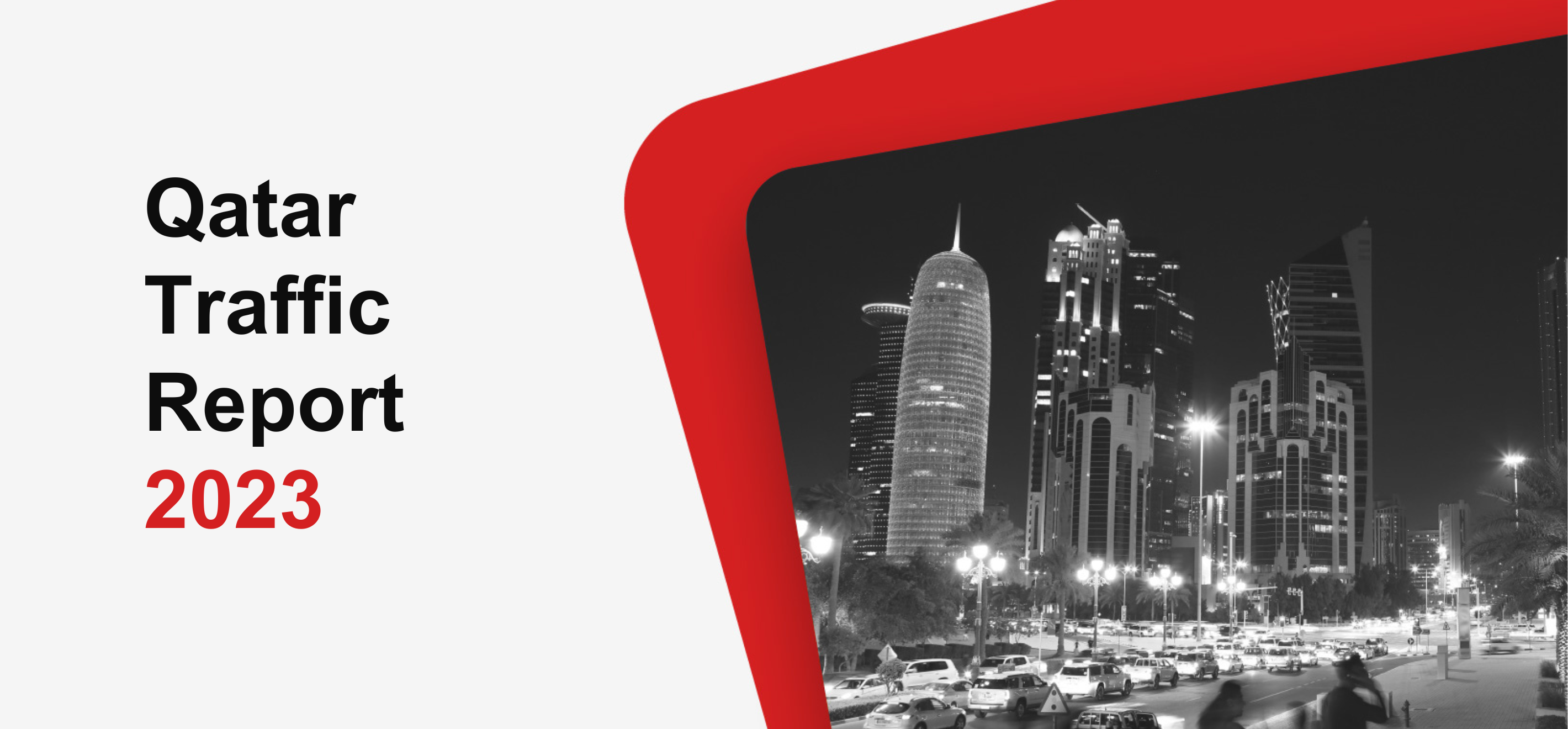
QMIC Announces Key Findings of its 2023 Qatar Traffic Report
11 February 2024: The 9th edition of the Qatar Traffic Report (QTR), released by Qatar Mobility innovations Center, provides valuable insight into the traffic trends and patterns in 2023. The report, which analyzed traffic data from 2023 and compared it against previously recorded data from past years.
According to the report, congestion during weekdays increased by 23% compared to 2022. This is indicated by an increase in hours wasted in traffic from 30 hours/year in 2022 to 37 hours/year in 2023. The report found a correlation between the congestion levels and population, suggesting that cars remain the primary mode of transport. There was an increase in the correlation by a14% in 2023 vs 2022. Conversely, the impact of visitors to Qatar on congestion decreased by around 40% in 2023 compared to 2022, making the overall impact moderate.
Dr. Fethi Filali, Director of Technology & Research at QMIC and who led the QTR team commented by saying “With over 8 billion data records collected by QMIC’s multi-source data collection network in 2023, we are committed to continue expanding our traffic data bank. This vast and diverse data bank serves as the foundation for generating the annual QTR. Leveraging our proprietary algorithms and data processing capabilities, we can extract valuable insights and draw conclusions about the behavior of Qatar’s road network and its impact on the average driver.”
The report highlights several key findings, including:
- The three major factors contributed to traffic trends in 2023 which are: post-hosting the world cup, completion of many road project, and hosting of Expo 2023 in Doha
- Commuters, on average, spent around 37 hours in congestion during 2023.
- November was the most congested month of 2023 with a congestion index of 14.4%, while April and July were the least congested with a congestion index of 9.4%.
- During workdays, the evening peak (6-7pm) was the most congested time of the day with a congestion index of 12.2%.
- Different congestion trend is observed on Thursday, where congestion is higher towards evening time than the rest of the weekdays.
- The cost of congestion in 2023 is estimated to be around 0.47% of GDP, which is below the global average of ~ 1%
Mr. Omar Mohammed Al-Jaber, Director of Strategic Partnerships and Outreach commented by saying “As we introduce the 9th edition of QMIC’s QTR, we’re proud to offer a comprehensive analysis of post-FIFA World Cup 2022 traffic dynamics, particularly influenced by the Expo 2023 mega event happening in Qatar. This edition not only highlights the efforts made by Ashghal in expanding the country’s road infrastructure but also serves as a vital tool for decision-makers dealing with the complexities of such large-scale events. Beyond its insights into traffic behaviors and patterns, the QTR provides key stakeholders with actionable intelligence to enhance daily transport operations, streamline costs, and elevate safety standards. For professionals in transportation, road safety, smart cities, and urban planning, this report serves as a guiding tool toward more efficient and resilient mobility solutions.”
QMIC’s annual Qatar Traffic Report plays a vital role in the center’s comprehensive and locally built mobility data platform, which provides a range of interconnected services including Intelligent Transport, Road Safety, and Smart Logistics/Telematics. In addition to its analytics platform, advanced GIS layers, and proprietary technologies, the platform incorporates a sophisticated network for collecting data from multiple sources. This network includes a vast array of fixed sensors utilizing QMIC’s WaveTrafTM road traffic sensors, Telematics devices installed in fleet vehicles, and crowd-sourced data contributed by thousands of Wain mobile application users.
QMIC is dedicated to expanding its data collection network to incorporate more comprehensive and informative tools. Additionally, QMIC aims to provide a vast range of related applications and services as a component of its intelligent mobility data and analytics platform.
About QMIC:
The Qatar Mobility Innovations Center (QMIC) is the first independent innovations center in the region with a focus on using R&D to develop and deploy Intelligent Mobility and Smart Cities platforms and technologies. QMIC’s main goal is to use locally engineered innovations & knowledge to enable creating home-grown technology industries that address national strategies and tackle regional emerging challenges. It was founded by Qatar University in 2009 and is registered and licensed to operate as a technology innovations center from the Qatar Science and Technology Park (QSTP).
Since 2009, QMIC has been utilizing emerging technologies including Internet of Things (IoT), Artificial Intelligence, and Location-Awareness to deliver data-centric platforms and services. In particular, QMIC has been leading in delivering platforms & solutions focusing on key domains including Intelligent Transport, Logistics & Telematics, Road Safety, and Connected & Autonomous Mobility (CAM).
Through its integrated innovations development & delivery model, QMIC represents a unique and important category within the national Research & Development & Innovations (RDI) enterprise in Qatar that is strategically driven, R&D-based, solution-focused, and business-oriented.
For further information please contact Mr. Abdulrahman Ajjawi
Email: [email protected]
Phone: +974 55645390, +974 4459 3694